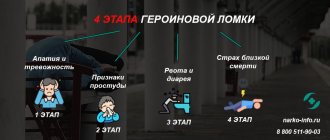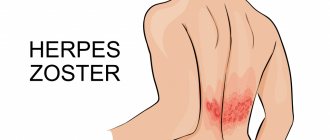Effective treatment of neurasthenia: general information
Making a diagnosis is the task of a neurologist, who must analyze the medical history and prescribe a general examination of the patient to rule out chronic or infectious diseases.
Neurasthenia is the result of organic pathological processes in the brain, which is why it is important to make sure that there is no history of such diseases (meningitis, tumors, neuroinfections). For this purpose, CT or MRI, rheoencephalography (this is a special examination of blood flow in the brain) is prescribed.
Treatment of various forms of neurasthenia should begin with the detection of a traumatic factor, since recovery is possible only if it is eliminated. The good news is that neurasthenia is treatable. This is one of the most favorable types of neurosis in terms of prognosis. But it is important to avoid the protracted course of the disease, which develops into chronic neurasthenia - curing it in this case is much more difficult.
In addition to drug treatment of deviation, it is necessary to use psychotherapeutic techniques. Personal and group psychotherapy, as well as psychoanalytic techniques, are recommended. Psychotherapy is aimed primarily at changing the patient’s attitude towards the traumatic situation as a whole; it encourages the person to take an active position in resolving a particular problem. Very often we ourselves set difficult tasks, and then punish ourselves if we cannot cope. This is extremely important to realize during consultations with a doctor. In addition, the patient is taught to separate the important from the unimportant, to live in such a way as to enjoy life, and not just work hard.
Types of emotional burnout
CMEA develops for various reasons. Depending on them, it is divided into several varieties.
Mild and chronic burnout
The mild form is a consequence of severe fatigue, which occurs when caring for small children or elderly relatives, before exams, or when performing urgent work. During these periods, a person forgets about everything, in particular, the need to rest.
After the children have grown up, the relatives have recovered, and the exams have been passed, the condition improves. Now you can have a good rest, play sports or any other pleasant activity.
In mild cases of exhaustion, positive emotions help to cope with despondency and restore interest in life and work.
The chronic form of emotional burnout develops with more serious problems. This may be a significant lack of money for something needed or too high demands from the employer. A person is under constant tension and feels anxious, resulting in increased stress on the nervous system. It manifests itself not only in a bad mood, but also in muscle pain and grinding of teeth at night.
An example of a chronic syndrome might be an employee who is afraid of his superiors at work or is tired of increasing responsibility. At some point, he begins to perform his duties purely mechanically, without experiencing satisfaction. The body, feeling tension, encourages a person to hide from people and problems, to retire. This begins the path to burnout, both emotional and physical.
Burnout at work
Burnout syndrome at work is the most common. This is usually a consequence of excessive workload and lack of days off. A person’s performance decreases, he needs more time to rest, and the desire to work disappears.
There are many examples of burnout at work. This could be a nurse who, due to fatigue, forgot to distribute pills to patients on time. Or a teacher who is indifferent to the class's bad behavior in class. These people no longer have the strength to fight. They are tired of everything that is happening around them.
Burnout nullifies all attempts to grow and develop professionally. It deprives you of the desire to move forward and learn something. Moreover, the person considers himself a bad worker.
What drug treatment for neurasthenia abroad is most effective?
It is important to take into account that choosing the means yourself, relying on the recommendations of friends and relatives, treating neurasthenia with folk remedies is strictly prohibited. Medicines are selected based on the existing manifestations and their severity. Patients may vary significantly in dosage and period of use, as in drug rehabilitation.
For some patients whose main symptom is irritability, taking medications with a sedative effect is suitable. If a person has a depleted nervous system, it is better not to use sedatives, because they can provoke an increase in lethargy and slow down mental and motor reactions.
To eliminate symptoms of anxiety and excessive irritability, daytime tranquilizers (for example, alprazolam) can be used for a short period of time (for 2-3 weeks). They have an activating effect and are able to remove vegetative neurasthenia.
When, in this mental disorder, a feeling of weakness is predominant, movement activity is impaired, and intolerance to habitual stress develops, in addition to tranquilizers, nootropic drugs (a set of drugs that can improve memory and mental activity) are prescribed: encephabol, aminalon, etc.
For better quality sleep, phenazepam and diazepam are suitable, which are recommended to be used for a short period of time (a couple of weeks) so that a habit does not develop. If you need to normalize sleep, sleeping pills with a short period of action (imovan, zolpidem) can be used. Their use does not cause daytime drowsiness.
The tactics of drug therapy often consist of taking drugs with a general strengthening effect - they help increase metabolism and help restore the functioning of the body. Vitamins of groups B, C), angioprotectors (trental), as well as antioxidants (mexidol) are suitable for this.
Why is nervous exhaustion dangerous for the body?
In a stressful situation, internal regulatory systems obey the orders of the nervous system. For example, if a person lives in a tense family environment, during each conflict the adrenal glands are ordered to produce hormones - adrenaline and cortisol. Moreover, their release occurs in increased quantities. This affects the body in the following ways:
- Immunity is suppressed. A person becomes more susceptible to flu and colds.
- This affects his blood pressure. It increases or, conversely, decreases.
- Adrenaline and cortisol in increased quantities affect the activity of neurons, which causes sleep disturbances. Memory and attention also deteriorate.
- Testosterone production decreases, which leads to decreased sex drive.
- Cortisol in large quantities has a detrimental effect on muscle cells, breaking them down into simpler components. Therefore, a person loses muscle mass and gains fat.
Cortisol and adrenaline affect the body in this way only if too much of them is produced. These hormones, in normal quantities, take part in the regulation of many metabolic processes within the body. Mainly, they affect carbohydrate metabolism. But their increase, as well as their decrease, is detrimental to health.
An innovative approach to the treatment of neurasthenia in Israel
As in the treatment of drug addiction in Israel, innovative approaches to drug therapy and psychotherapy are used here. The program can last from a month to several months, and specialists select a specific strategy on an individual basis.
As a rule, treatment is complex, that is, psychotherapy sessions are combined with medications and physiotherapy. During the treatment period, the patient is under the supervision of the attending physician, who promptly responds to changes in his condition, and also promptly changes tactics if necessary.
As specialists from the Renaissance rehabilitation center noted, psychotherapists have in their arsenal not just hypnosis, neurolinguistic programming, but also small group sessions, in particular psychodrama. This is an amazing technique that helps to reveal unconscious but already experienced events, fears that were previously hidden on a subconscious level.
Autogenic training is also becoming an important way to cure neurasthenia, which has been practiced since ancient times.
In more advanced situations, psychotropic medications (neuroleptics, antidepressants) are used. The most effective method of treatment in Israel, as many experts have confirmed, is psychotherapy, which involves long-term work with patients.
Anxiety, depression
A common symptom of mental exhaustion is constant worry. The most ordinary things cause anxiety. Simply discussing your work with your manager can raise concerns about possible dismissal. This condition in itself provokes stress.
A person suffering from moral and emotional exhaustion often experiences tearfulness and depression. His self-esteem is declining. He loses faith in his strength and considers himself a failure. Worry about imaginary or real failures leads to high fatigue and sleep disturbances.
Find out how long it takes to treat neurasthenia in Moscow
Treatment of mental disorders takes into account the medical history, knowledge of the patient’s condition, and the etiology of his illness.
Neurasthenia, being a psychogenic disease, can occur in different ways. Even with proper treatment, it can last for months, and sometimes for more than one year.
Mild neurasthenia is sometimes treated at home. If the disease has progressed too far, therapy is carried out in a hospital. If necessary, hypnosis and autogenic training are also prescribed.
The importance of getting enough sleep
Often, in addition to depleting the internal reserves of the nervous system, one also has to deal with insomnia. To overcome these disorders, you must follow the following healthy sleep rules:
- A few hours before a night's rest, it is not recommended to consume heavy food or alcoholic drinks.
- The room should be dark. All light sources are eliminated: gadgets must be turned off, lamps must be extinguished. If possible, wear a sleep mask.
- It is useful to have your own special bedtime ritual. For example, brushing teeth – yoga – changing clothes – sleep.
- If possible, it is useful to take a short walk in the air in the evening.
Study the cost of treatment for neurasthenia in leading clinics
Prices for a consultation with a psychotherapist in Moscow and St. Petersburg are approximately identical - from 1,500 to 4,000 rubles. They depend on the qualifications, experience and title of the doctor, the status of the clinic, etc. The number of sessions, the treatment program, and therefore the price of all procedures, as in the treatment of alcoholism, can be determined after a thorough diagnosis.
Prices in Israel are, of course, somewhat higher, which is consistent with the highest quality provided by clinics in this state. So, a consultation with a psychotherapist here costs about $200. Its cost is also related to the regalia and experience of the specialist and the reputation of the center where the patient goes.
Reasons for the development of CMEA
As mentioned above, emotional burnout develops due to excessive workload and fatigue. But there are other reasons:
- the need to repeat monotonous actions;
- low labor incentives;
- undeserved criticism from the outside;
- unclear tasks, unattainable goals;
- feeling of uselessness.
This condition is most often encountered by people who have a number of qualities:
- maximalism;
- responsibility;
- daydreaming;
- tendency to idealize.
Those at risk are those who abuse alcoholic drinks and energy drinks, as well as those who care for seriously ill relatives for a long period of time.
It is noteworthy that housewives can also develop SEV. They are oppressed by monotony and a feeling of uselessness. A good example is young mothers on maternity leave.
Read reviews about the treatment of neurasthenia
“Last year my husband needed to undergo treatment. The diagnosis of neurasthenia meant little to us at the time. It was not clear whether this was serious at all and whether there was a need to panic. The doctor at our city clinic advised me to combine therapy with rest. We began to consider different options; Israel seemed to us the most acceptable in this regard. It was here that we had long wanted to visit, and besides, the reviews about the country’s most famous clinic of this profile (Renaissance RC) were extremely positive. Therapy included a variety of approaches, including massage, diet, psychotherapy, and hypnosis. The husband noted that this helped him control his own emotions and return to normal.”
Anna Ilyina, Omsk
“Not long ago I had the opportunity to encounter neurasthenia. The disease developed gradually, so I did not immediately realize that it was time to see a doctor. I believed that the deterioration was explained by the situation at work, then my sleep returned to normal, and I again postponed going to see a specialist. But the disease returned and was even more severe each time. I realized that even if we are not talking about drug addiction treatment, it is better not to joke with health. He underwent treatment at the Renaissance RC. I am completely satisfied with the quality of therapy and the attitude towards myself. I can recommend that if such problems arise, you contact the same clinic, they will certainly help you.”
Anton Antipov, Moscow
Development of burnout
Moral burnout develops gradually and at first seems like banal fatigue. However, psychologists advise seeking help as early as possible.
There are several stages of emotional burnout. It all starts out quite innocently. A person wants to assert himself and stand out from others. Afterwards he becomes uninterested in what is happening around him. Suddenly the desire to communicate, play sports, and take care of your appearance disappears.
At the next level of exhaustion, conflicts with colleagues, relatives, and friends appear. He doesn’t want to resolve them, so the conflicts drag on. Then any reaction to controversial situations disappears.
Ultimately, burnout causes you to lose interest in life. A person lives by inertia, without thinking about the future.
It is noteworthy that burnout syndrome is difficult to diagnose. The “sick” person goes to work and even communicates as usual. He attributes his bad mood and communication problems to fatigue. Only those closest to him will notice his inner emptiness. The main thing is that this does not happen in the last stages of burnout.
Symptoms of neurotic disorders
Neurotic dysfunctions are characterized by instability of mood and rash actions. Patients suffer from memory impairment, problems with concentration, and a number of other clinical manifestations:
- causeless psychological stress;
- increased fatigue;
- sleep problems;
- isolation;
- fixation on problems in life;
- memory impairment;
- dizziness;
- fainting;
- migraine;
- pain in the heart muscle and joints;
- frequent urination;
- excessive sweating;
- decreased potency;
- high or low self-esteem;
- inconsistency, uncertainty;
- tearfulness;
- aggressiveness;
- suspiciousness;
- poor prioritization.
Symptoms of neurotic disorders are often complemented by increased sensitivity to light, sound, and reactions to minor temperature changes.
Signs of neurotic disorders
Signs of neurotic disorders vary by gender. In women, asthenic neurosis more often appears, characterized by aggressiveness, loss of mental and physical ability, and lack of sexual desire. During intimacy, it is impossible to relax. A woman suffering from asthenic neurosis quarrels with relatives and often loses her temper over trifles. Constant tension is fraught with the development of diseases of internal organs.
In men there are the following types:
- depressed – a person is not able to realize himself in the world of work, or adapt to sudden changes in any area of life;
- male neurasthenia - usually appears after physical or moral overstrain; workaholics are susceptible to this type.
Men and women over 45 years of age are prone to these types of diseases. They may still have problems with the functioning of their internal organs.
Neurotic disorder syndrome
The syndrome of neurotic disorders is a reflection of a traumatic circumstance and is often combined with other neurotic manifestations. The patient's mood decreases, but there is no feeling of melancholy. Usually, a bad mood is combined with emotional lability, asthenia, mild anxiety, loss of appetite and insomnia. During the day, no special fluctuations are observed, or they are mild. Mental and motor retardation, self-flagellation, and suicidal thoughts are not typical.
- Neurotic depression is distinguished from reactive depression, which is also caused by traumatic circumstances. In the second type, the symptoms reach the level of reactive psychosis - the patient is depressed, inhibited, consciousness is narrowed, and thoughts of suicide appear.
- In the case of psychotic depression, the patient wishes to die, there is gross disorientation of the personality with separation from life, sudden anosognosia, delusional ideas of self-humiliation, manic episodes. The condition can be controlled with antidepressants and a repeated course of treatment.
- Neurotic depression is characterized by the preservation of the basic personality qualities, the patient is aware of his condition. Obsessive phobias and pronounced hysterical manifestations appear.
Important! Psychotic depression is more dangerous for a person and requires immediate treatment.
Levels of neurotic disorders
Neurotic disorders occur at 3 levels: as a manifestation of individual symptoms, at the level of minor syndromes, and as specific disorders.
Levels of neurotic disorders.
- Individual symptoms. They are also present in those who do not suffer from mental disorders.
- A minor emotional disorder can be complemented by several neurotic syndromes, of which the leading one is not identified.
The patient population consists of 2 types:
- some suffer from an acute, short-term stress reaction;
- others experience long-term, chronic impairment.
Most patients recover within six months, while others recover in no less than 3 years.
Our advantages
The multidisciplinary medical center offers each visitor services for the diagnosis and treatment of various diseases. Our advantages include:
- the most popular areas of work: neurology, cardiology, surgery, gastroenterology, etc.;
- modern diagnostic equipment;
- all types of laboratory analyzes and tests;
- the most effective methods of treating various pathologies;
- individual approach to the selection of therapy;
- auxiliary treatment methods: physiotherapy, physical therapy, massage;
- comfortable day rooms;
- Appointment by appointment at a time convenient for the patient;
- affordable prices for all services.
Neurasthenia is a disease in which a person does not have the strength to pull himself together. Without qualified help and elimination of the traumatic factor, it will progress, increasingly depleting the nervous system. Help yourself get out of the vicious circle, sign up with Health Energy specialists.










